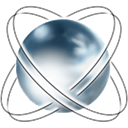The Best Debian Alternatives for Your Operating System Needs
Debian, a cornerstone in the world of free and open-source operating systems, is renowned for its stability, vast package repository (over 51,000 packages!), and commitment to free software principles. It serves as the foundational 'tower' upon which many other Linux distributions are built. However, while Debian offers unparalleled flexibility and control, its conservative update cycle or steeper learning curve for newcomers might lead users to seek a Debian alternative. Whether you're looking for something more user-friendly, specialized for a particular task, or simply a different philosophy, there's a wealth of excellent operating systems that can serve as a fantastic substitute for Debian.
Top Debian Alternatives
Finding the perfect operating system depends heavily on your specific needs, experience level, and preferred workflow. Here, we delve into some of the most prominent and highly-regarded Debian alternatives, each offering a unique set of advantages.

Ubuntu
Ubuntu is perhaps the most well-known Debian Linux-based open-source operating system for desktop computers, making it a very popular Debian alternative. It builds upon Debian's robust foundation, offering a more user-friendly experience with frequent updates, a large community, and extensive hardware support. Available for Free and Open Source, it runs on Windows and Linux, and offers features like being customizable, based on Debian, OTA Updates, and the convenient APT package manager.

Linux Mint
Linux Mint is another excellent Debian alternative, especially appealing to users transitioning from Windows due to its familiar interface. It's a Free and Open Source Linux distribution that aims to be modern, elegant, and comfortable to use. Based on Ubuntu (and therefore Debian), Linux Mint offers out-of-the-box multimedia support, a focus on user experience, and comes with a variety of desktop environments including Cinnamon, XFCE, and MATE. Its features include being customizable, Windows-like, and privacy-focused.

Arch Linux
For those who prefer a more hands-on and minimalist approach, Arch Linux stands out as a powerful Debian alternative. This independently developed, Free and Open Source Linux distribution targets competent Linux users, offering a rolling release model and the powerful pacman package manager. It's highly customizable and lightweight, providing users with the freedom to build their system from the ground up, ideal for those who love to tinker and desire a bleeding-edge system.

Manjaro Linux
Manjaro Linux is a user-friendly Debian alternative that leverages the power and flexibility of Arch Linux without the challenging installation process. It's a Free and Open Source Linux distribution that boasts a rolling release model, out-of-the-box functionality, and excellent hardware detection, including support for Nvidia drivers. Manjaro offers the bleeding-edge software of Arch with added stability and a polished user experience, making it a great option for those seeking an Arch-based system with less fuss.

Windows 10
While fundamentally different from Debian, Windows 10 is a commercial operating system by Microsoft and a pervasive alternative for users who require specific software compatibility or prefer a widely supported, proprietary environment. As a Windows platform, it offers a familiar graphical user interface, extensive software and hardware support, and integrations with Microsoft services like OneDrive and Xbox. It's a viable Debian alternative for users prioritizing broad compatibility and commercial support.

Fedora
Fedora is a Free and Open Source Linux distribution known for its commitment to free software and its role as a testing ground for technologies that often find their way into Red Hat Enterprise Linux. It offers a cutting-edge experience with the latest software versions and a focus on innovation. For users seeking a stable yet current Debian alternative that embraces modern Linux advancements, Fedora is an excellent choice, featuring a built-in GUI, multiple languages, and separated workspaces.

elementary OS
elementary OS is a Free and Open Source Linux distribution based on Ubuntu, renowned for its beautiful, macOS-like interface and focus on user experience and aesthetics. It provides a clean, fast, and distraction-free environment, making it an appealing Debian alternative for users who prioritize design and simplicity. It's compatible with Debian packages and offers out-of-the-box functionality, with features like Flatpak integration and a streamlined UI.

macOS
macOS, developed by Apple Inc., is a Unix-based operating system designed exclusively for Macintosh computers. As a Free platform (included with Apple hardware), it serves as a powerful and polished Debian alternative for those in the Apple ecosystem. It's known for its intuitive user interface, robust multimedia capabilities, and seamless integration with Apple's hardware and services. Features include being Unix-like, privacy-focused, and having Spotlight search.

Tails
Tails is a Debian-based live CD/USB operating system explicitly designed for anonymity and privacy, making it a specialized Debian alternative for security-conscious users. It's a Free and Open Source Linux distribution that routes all Internet traffic through the Tor network, leaving no trace on the computer after shutdown. Features like PGP Encryption, Tor support, and Cold Boot Protection make it ideal for secure communications and browsing, directly booting from USB.

ReactOS
ReactOS is a Free and Open Source operating system that aims to be binary-compatible with Microsoft Windows NT, offering a unique Debian alternative for users who need to run Windows applications and drivers without using Windows itself. It's a lightweight OS with a Windows XP compatibility layer and features like a package manager and support for BTRFS. While still in active development, it presents an intriguing open-source solution for specific compatibility needs.
Each of these operating systems offers a distinct approach to computing, addressing different user requirements and preferences. Exploring their unique features and philosophies will help you determine the best fit for your personal or professional needs, ensuring you find an operating system that truly empowers your digital experience.